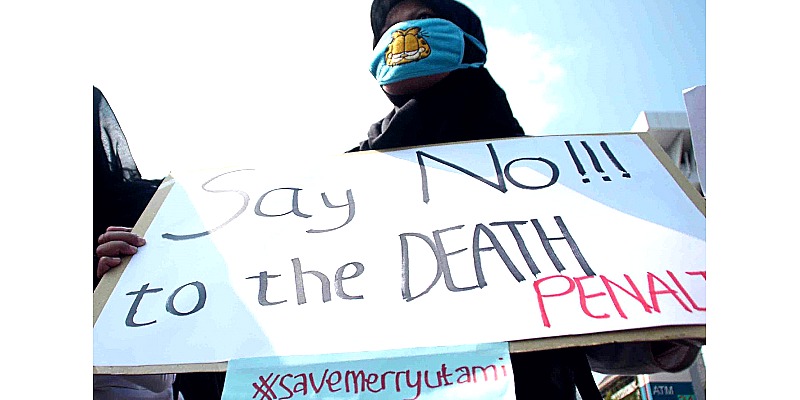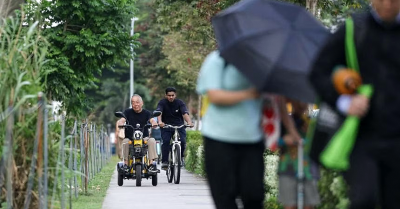After doing a profound disservice to the global public interest by not covering the intransigent issue of migrant workers in Qatar, Al Jazeera recently bounced back and did the right thing by covering the war on drugs in Singapore.
It is an extremely complex problem that links with the right of a state to provide safety and almost zero crime, but it relates to inequalities and poverty.
It is also about finding a balance on how to carry out just sentences and punish those acting as drug mules, mostly disadvantaged people, many of whom are women.
As we know, it is a big issue, almost a taboo, not only in the city-state but also throughout Southeast Asia.
Yet something is happening and the walls surrounding one of the most sensitive and controversial issues are starting to crack.
While nobody wants the region flooded with drugs, more and more citizens are starting questioning if capital punishment is the most effective deterrent.
If Malaysia is the major nation in the region to break away from mandatory death sentencing and is on a trajectory of finally getting rid of it for good, Indonesia is also following through somehow.
The new Criminal Code offers hope for a more progressive model of sentencing that could ultimately drastically reduce the circumstances for which the death penalty is administrated.
Yet it is a very busy time for those bold human rights defenders on the front lines in the fight against capital punishment.
Yosua Octavian, a lawyer for the LBH Masyarakat legal aid institute, one of the most important human rights organizations in Indonesia, is very busy these days.
He is currently assisting seven people, one of whom is a grandmother from Mexico, who are at risk of being sentenced with the death penalty.
Yosua explained that assessing the impact of the new code was complex and, to a great extent, it was frustrating and he was torn about its effectiveness.
First of all, he said, there was still too much discretion in the hands of the judges dealing with cases. For example, Article 100 of the Criminal Code authorizes judges to impose the death penalty with a probationary period of ten years, but there are several caveats.
“It will all depend on the justice’s discretion to determine if there is remorse on the part of the perpetrator and there is hope to correct the mistake. It is all based on the subjective authority of the judge. This means that if the judge is convinced of a presumption of guilt from the start, the probation period will not be contemplated,” he said.
Furthermore, for the commutation to be considered, the judge must assess the secondary role of the alleged perpetrator in committing the crime.
“What is bad about Article 100 is that the probation period must be stated in the judgment. So if this is not in the judgment, then the probation period becomes void.”

Marie-Lina Perez, the head of Africa/Asia Desk at ECPM, one of the leading anti-death penalty organizations, noted cautious optimism for what was happening in Indonesia.
“I will not go as far as to say that Indonesia is a success story, because the reform could have been even more progressive, but it is already a step on the right direction,” she said.
Then, referring to what was happening in the region, she said, “In Malaysia, we acknowledge and welcome the different positive steps taken these past five years. We will get to the abolition step by step.
“What was once a very touchy issue in the country has now become an open conversation. I have no doubt that Malaysia is going to set the example in the sub-region.”
One of the cases Yosua is working on is related to a poor man from Penang whose nickname is Pakcik (uncle in Malay).
He was so desperate to pay for his wife diabetes treatment that he was lured into going to Indonesia to transport ecstasy.
Pakcik was advised by his handler to bring his wife so that he would avoid any suspicions of being a drug courier. For this job, the compensation was only RM5,000.
He lied to his wife, saying they were going to Indonesia to meet a famous doctor to treating her condition.
He was arrested along with his wife, but neither could understand Indonesian as they were Malaysians of Chinese ethnicity who only spoke Hokkien. Nor did they receive optimal legal assistance.
In 2016, a judge at the West Jakarta District Court sentenced them to death. The judge never considered the issue of poverty. The issue of his wife’s vulnerability was never discussed. In 2020, she died in prison as a result of her diabetes.
Now LBH Masyarakat hopes that Pakcik will be pardoned or that the sentencing will be revised to follow the new Criminal Code.
“After all, to this day Pakcik is a poor prisoner who has never received visits from his family or embassy. He has also never been in trouble with the law or committed any offenses while in detention,” Yosua said.
Going back to Al-Jazeera’s documentary, we need more of this type of journalism. It narrates the travails of the families of several criminals sentenced to death.
Watching is gut-wrenching, but it also offers hope because in Singapore there is a small group of activists opposing the death penalty doing a lot to put the issue at the center of the conversation.
The documentary also highlights the role of Adrian Tan, a distinguished lawyer who is also the president of the Law Society in Singapore.
He is someone within the system who knows how the system works and has been bold to tackle the issue by getting into very uncomfortable territory that many of his peers prefer to avoid.
We need human rights defenders like Yosua and activists in Singapore, but we also need mainstream figures to change the equation, even if the latter will take a longer and less vocal route.
Perez believes that “Malaysia and Indonesia are two countries with great influence in the region. Any positive action taken toward abolition will eventually influence their neighbors.”
Yet the fights of LBH Masyarakat and other human rights defenders are continuing, and it is too early to lower their guard even if some hope is emerging.
“One step at a time,” Perez said.
We need a comprehensive and holistic strategy: litigation, activism and, importantly, more insiders seeking to reform the system in the same way as Tan. Change can happen and is happening.
ADVERTISEMENT
ADVERTISEMENT








































